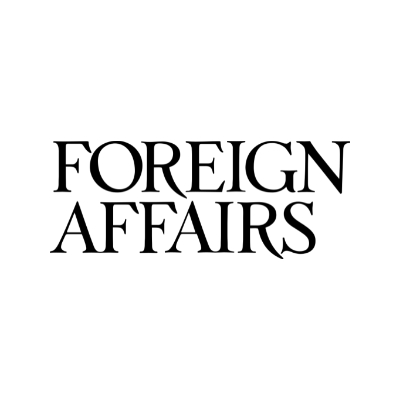 Foreign Affairs Article Rating
Foreign Affairs Article RatingThe New Way to Fight Climate Change
- Bias Rating
-6% Center
- Reliability
N/AN/A
- Policy Leaning
-50% Medium Liberal
- Politician Portrayal
-31% Negative
Continue For Free
Create your free account to see the in-depth bias analytics and more.
Continue
Continue
By creating an account, you agree to our Terms and Privacy Policy, and subscribe to email updates. Already a member: Log inBias Score Analysis
The A.I. bias rating includes policy and politician portrayal leanings based on the author’s tone found in the article using machine learning. Bias scores are on a scale of -100% to 100% with higher negative scores being more liberal and higher positive scores being more conservative, and 0% being neutral.
Sentiments
N/A
- Liberal
- Conservative
| Sentence | Sentiment | Bias |
|---|---|---|
Unlock this feature by upgrading to the Pro plan. | ||
Reliability Score Analysis
Policy Leaning Analysis
Politician Portrayal Analysis
Bias Meter
Extremely
Liberal
Very
Liberal
Moderately
Liberal
Somewhat Liberal
Center
Somewhat Conservative
Moderately
Conservative
Very
Conservative
Extremely
Conservative
-100%
Liberal
100%
Conservative

Contributing sentiments towards policy:
64% : Early on, governments in California and Japan poured money into diverse technological options for solar power.63% : By following this logic, India and many other countries are now also leaping forward and deploying solar power on a massive scale.
63% : Last year around the edges of COP26, France, Germany, the United Kingdom, the United States, and the European Union agreed to provide South Africa a multi-billion dollar package of loans and grants so that it could quickly move coal out of its energy system.
58% : For example, the United States and the European Union have created a partnership to advance clean steel and other metals, making it clear to their leading firms that successful innovation in metals will be rewarded in multiple markets.
55% : To prevent another Great Depression, for example, they created new financial institutions, such as the International Monetary Fund and the General Agreement on Tariffs and Trade -- the precursor to the World Trade Organization.
54% : Deep cuts in emissions, for example, won't spread around the planet unless the world's four great geopolitical poles -- the United States, China, the European Union, and India -- all find a way to engage.
50% : The war in Ukraine has prompted some countries, such as Germany, to temporarily shift back, but the future of coal is clear.
50% : Eliminating coal, of course, could economically ravage some local communities.
49% : That's why the best programs -- the effort to cut coal in South Africa, for example, or the new green energy loans and grants from the European Bank for Reconstruction and Development -- include not just funding for coal alternatives but also programs to help the communities hit hard by the shift.
48% : Over the last two years, multiple governments, international organizations, nongovernmental organizations, and private-sector advocates have been working together to help countries build new clean power plants and move away from coal.
46% : This shift in strategy is evident, for example, in how solar power has emerged from a fringe technology to one of the least expensive ways to generate electricity.
45% : Perhaps the most important target for aggressive regulation is coal.
45% : But perhaps the most important target for aggressive regulation is coal.
43% : The use of coal is in decline elsewhere in the world, as well.
*Our bias meter rating uses data science including sentiment analysis, machine learning and our proprietary algorithm for determining biases in news articles. Bias scores are on a scale of -100% to 100% with higher negative scores being more liberal and higher positive scores being more conservative, and 0% being neutral. The rating is an independent analysis and is not affiliated nor sponsored by the news source or any other organization.





















